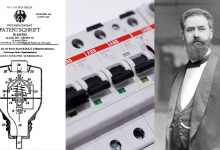EPBD Recast: Policy, Challenges, and Implementation
Romania Eficienta Forum 5th Edition
Romania Eficienta Forum 5th Edition, organised by Energy Policy Group (EPG) within the framework of the Romania Eficienta programme, focused on the latest revision of the Energy Performance of Buildings Directive (EPBD) as part of the ‘Fit for 55’ package, which stands out as one of the most ambitious and pivotal efforts to date in achieving the EU’s climate neutrality targets. The recast EPBD introduces new decarbonisation instruments and strengthens existing ones: a common definition of zero emission buildings (ZEB), tools and measures to develop and scale up renovations, and a cap on carbon embedded in construction materials.
The Romania Eficienta Programme is a privately endowed multiannual project that promotes energy efficiency in buildings through public information campaigns, educational programmes, as well as renovation works on various public schools across the country. The project is carried out by EPG in partnership with and with funding from OMV Petrom.
The conference brought together high-level experts, EU and national public authorities and industry professionals to discuss the opportunities and tackle the challenges of the recast EPBD for Romania and the region.
At the beginning of the event, Christina Verchere – CEO of OMV Petrom, stressed the role of energy efficiency and the concern for education, which are important concepts for the company. “There is so much to do on the educational side. We are having sessions with all levels of education to raise awareness. Educate the young people and it will last for generations to come. This has always been our philosophy and we stand strongly behind that.” One of OMV Petrom’s goals, she added, is to show local authorities that it is possible to get funding. “Our goal is to see replication by local municipalities, and they can do these projects by themselves. That’s how you take it from projects to sustainable transformation.”
As an energy company, OMV Petrom has a very ambitious decarbonisation plan. Through programmes such as Romania Eficienta, the company aims to change mindsets regarding renovations. They focus on schools, but also on buildings.
The importance of the Recast EPBD was underlined by the European Commission representative Bogdan Atanasiu. The revised Energy Performance of Buildings Directive puts Europe on track to achieve a fully decarbonised building stock by 2050 by spurring renovations in each Member State, particularly for worst-performing buildings. It upgrades the existing regulatory framework (agreed in 2018) to reflect higher climate ambition coupled with social action and provides the Member States with the flexibility needed to consider the differences in the building stock across Europe.
Zero Emissions Buildings (ZEB)
The development of an EU policy definition for Zero Emission Buildings (ZEB) serves as a common reference for standardisation in new builds and renovations in the EU Member States. The first panel of the Romania Eficienta Forum focused on the importance of establishing robust and coherent country regulations around the ZEB concept, and harmonised regulations across the EU.
Oana Ozmen – Secretary, Committee for Industries and Services at the Romanian Parliament, presented the national perspective on the new EPBD and the new initiative in Parliament in line with European regulations. She also stressed the importance of finalising the register of public buildings by the end of this year.
A challenge launched by Catalin Lungu – OAER (Romanian Order of Energy Auditors), took into account a ZEB renovation, even if we don’t have this standard now. He considers this concept the most important novelty in this new directive.
Continuing the discussion, Horia Petran – President at Cluster-PRO nZEB, defined the nZEB concept and explained the methodology to achieve the standard requirements, while insisting on the EPBD solutions for this process. The question is: “are we nZEB ready?”
National and EU renovation challenges
Romania’s renovation rates are low and barely sufficient to meet the country’s and the EU’s energy saving and building emission reduction targets. The panel explored options and strategies to strengthen the renovation sector through the implementation of the recast EPBD, while ensuring that the new measures avoid potential and former pitfalls.
Adrian Joyce – Renovate Europe’s Campaign Director, chose to talk about how we can tackle the challenges of renovation, rather than what the challenges of renovation are. In his opinion, the Buildings Directive is a significant step in propelling the EU towards a more competitive and energy secure future. By improving the energy performance of buildings, we can significantly reduce energy consumption, thereby lowering utility bills, reducing greenhouse gas emissions, providing greater comfort for people, and creating healthier indoor environments.
The Secretary General of the European Federation of Intelligent Energy Efficiency Services (EFIEES) Valérie Plainemaison highlighted the role of energy management, staged deep renovation & energy performance contracts (EnPCs) in the renovation of buildings. She also mentioned strategies for national/local renovation action plans, zero emission buildings – which can be connected to efficient district heating and cooling networks – showing the energy performance of the building stock at district or city level. She also addressed heating and cooling issues as major difficulties in energy renovation processes.
Mihai Moia – Executive Director of the Association for Promoting Energy Efficiency in Buildings (ROENEF), underlined the crucial role of central and local authorities in coordinating issues related to energy efficiency in buildings. To this end, the association has developed a guide for stakeholders mapping the best available technologies for increasing the energy performance of buildings, he said. Moreover, another challenge, he believes, is raising national awareness of the benefits of renovation.
According to Anca Ginavar – Director in the Ministry of Development, Public Works and Administration, the implementation of energy efficiency policies must be a joint effort of the public and private sectors, based on cooperation between all professionals involved in this type of projects.
A new project initiated by EPG in collaboration with partners from Bulgaria, Croatia and Poland was presented by Aura Oancea, researcher, and EPG representative. The main objectives of the project “Overcoming Underperforming Renovations in Central and Eastern Europe” are to improve awareness and information at institutional level on underperforming renovations of public buildings and to promote the improvement of the energy efficiency of these buildings through additional works based on clear roadmaps. The project identifies the main reasons for underperforming renovation and provides an overview of the current situation in the four project countries. The results will support the development of the countries’ National Building Renovation Plans and the implementation of the recast Energy Performance of Buildings Directive.
Embedded Carbon Emissions
Embedded carbon can account for more than 50% of a building’s GHG over its lifetime. The introduction of life cycle assessment (LCA) and a Global Warming Potential (GWA) indicator offers a new tool to accelerate the decarbonisation of the building materials industry. The panel focused on existing implementations of embedded carbon legislation in several European countries, addressing country-specific challenges and barriers and providing recommendations for adoption into national legislation.
Catalin Lungu pointed out that in Romania there is still no legislation implemented at national level, and at European level there is no standardised procedure for declaring a company’s embedded emissions.
More explanations on the industrial carbon footprint reduction strategy came from Raluca Petrescu – Strategy, Sustainability and Public Advocacy Director at Saint-Gobain Romania. Although there is no legislation, there is a regulation on construction products under review at European level, she said. Saint-Gobain already has EPDs for almost 90% of products sold and aims for 100%. An environmental product declaration (EPD) is a document that transparently communicates the environmental performance or impact of any product or material over its lifetime. Within the construction industry, EPDs support carbon emission reduction by making it possible to compare the impacts of different materials and products in order to select the most sustainable option.
Having a uniform set of regulatory provisions is of major importance, concluded Radu Dudau – President of EPG, who added that green products are more expensive, and we need to support an economy that is able to integrate these products and make them competitive.







